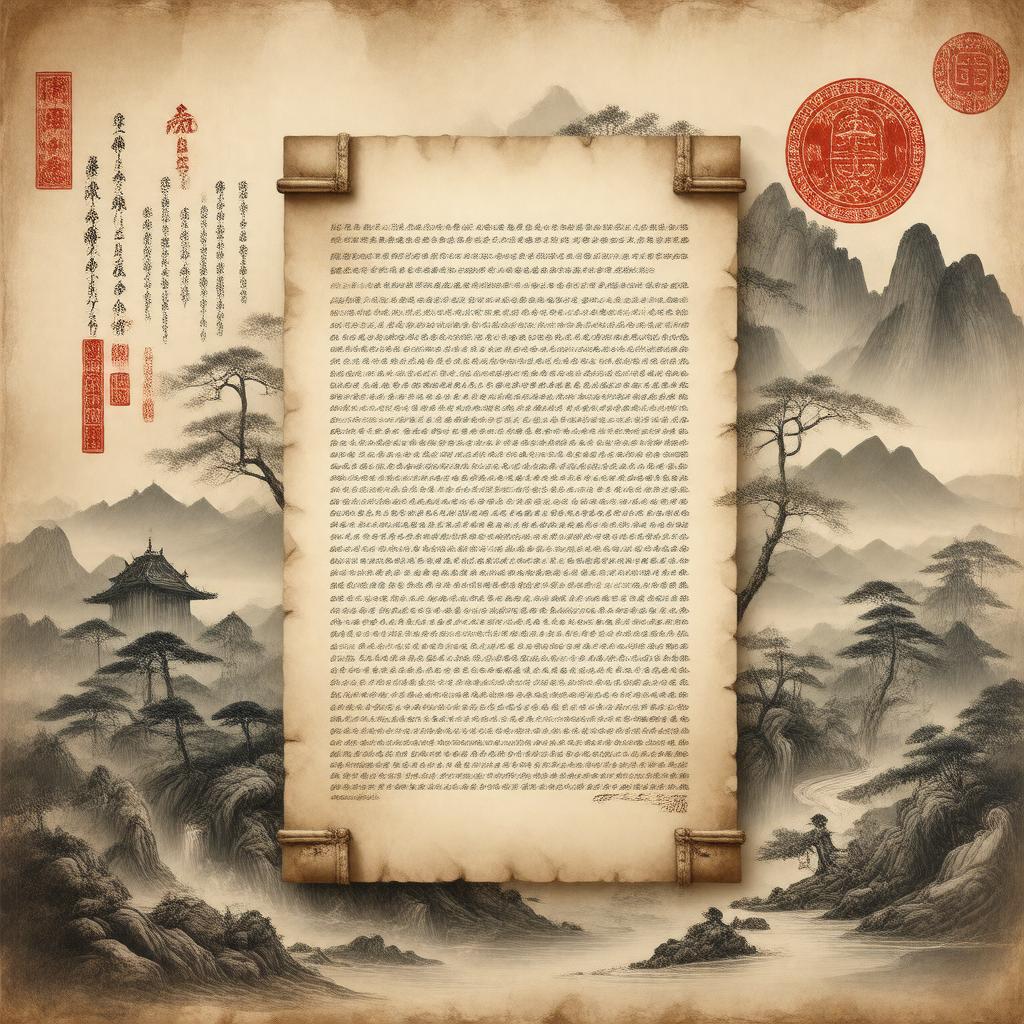Prompt
"Generate an image of a historic document, specifically the Meiji Constitution of Japan, also known as the Constitution of the Empire of Japan, written in Japanese, with a formal and elegant layout, surrounded by traditional Japanese motifs and symbols, such as the Imperial Seal of Japan, and a background that represents the Meiji era, with a sense of importance and significance, reflecting the document's role in establishing a constitutional monarchy and modernizing Japan."

